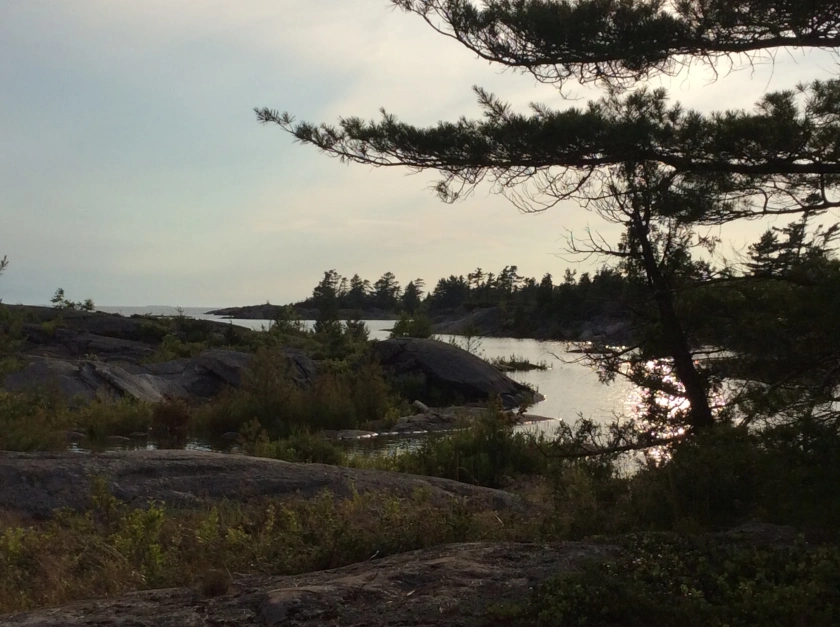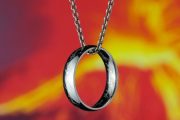Lake trout might have been the fish they preferred. Back in those days, long before Europeans began fishing commercially and the predatory sea lamprey made its way into the Great Lakes, lake trout grew to enormous sizes and might have been an important part of indigenous diets in wintertime.
Alec remembered his father saying the trout were a deep water fish that came to the shallows to spawn in the autumn. at which time they would have been easier to catch, though it wasn’t known what method was used. Perhaps the large fire places were part of a smoking process that helped preserve the trout flesh in indigenous camps over the winters.
Alec decided he would make a fire in the one on Portal to see if it would support his theory. Actually, he recalled, in all the time the family had known of the firepit, they had never used it themselves, preferring a different site on the open bare rock away from the shrubbery and trees. He collected some small sticks to start the fire, then gradually thicker pieces to keep it going. The U-shaped pit was nearly a meter across, big enough to burn a lot of thick logs over a long period of time, which Alec thought would be necessary for the smoking process. But he did not intend to go that far. He just wanted to see if his smoking theory was feasible.
After collecting twigs and scraps of driftwood and placing them in the middle of the firepit, he carefully lit them and added the larger pieces until there was a small but respectable blaze burning between the rocks. Alec sat back in his chair and watched the fire.
He wondered how many years, or even centuries had passed since flames had burned among those rocks. Gradually, he became aware of a change in the atmosphere around this little scenario he had created on the shore of this small island. It was not something he could have described to anyone, but it wasn’t something he had ever experienced before. He could not bring himself to put the fire out until it had burned down to smoking ashes.
He went to sleep late that night with the feeling that something invisible had changed around Portal Island.
Just after dawn the next morning, Alec through his slumber heard strange sounds of muted splashing and occasional human voices, both in the distance and close by. He stepped out of the tent, and was confronted with a scene he could not have imagined.
On both sides of the island the narrow channels were filled with moving birch bark canoes paddled by indigenous men of the past. The craft were heavily laden, and all going north. They stretched as far as the eye could see. Approaching the island from the south was a smaller canoe paddled by two white men in black robes. Instantly, Alec understood what he was seeing.
It was an apparition of perhaps the largest fleet of Wendat trade canoes taking furs and other goods to trade for European items with French entrepreneurs in what would become Montreal. The “black robes” were Jesuit missionaries who had served their time at St. Marie (now Midland) and were returning to mission headquarters. According to the “Jesuit Relations”, in 1634 about 700 men in 170 canoes carried their trade goods up Georgian Bay, up the French River, and down the Ottawa River to the settlement at now Montreal. Alec had learned the story in school and had been fascinated by it.
As the ghostly parade passed, he accepted that he was being shown a 300-year-old historical event. But he wasn’t expecting to be part of it. The Black Robes edged their canoe close to Portal and beckoned Alec to join them. On impulse, he launched his own canoe and set out after them.
When Harry Ross came to pick up his father several days later, he found a note scrawled on the last page of the journal Alec carried everywhere: “Harry — Don’t waste time looking for me. I have gone to a better place. See you in our next life. — Love, Dad”.
Neither Alec nor his canoe were ever found. Perhaps Portal Island had been true to its name.

Twilight among the islands where Alec disappeared.




